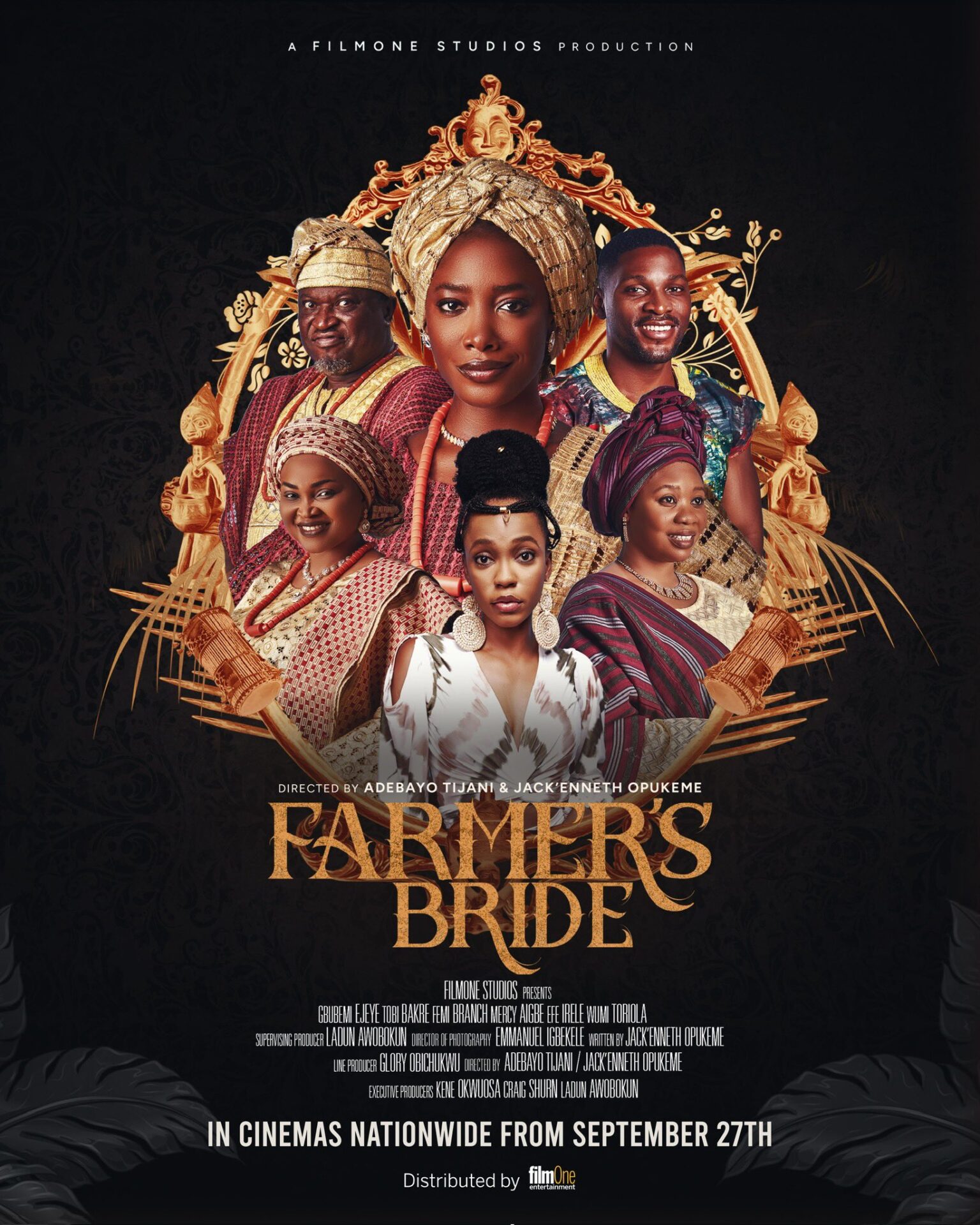
Farmer’s Bride is a riveting Nollywood period drama directed by Adebayo Tijani and Jack’enneth Opukeme. Set against the lush rural backdrop of 1980s Ibadan, the film weaves a tale of love, betrayal, and the dire consequences of forbidden desires. With its richly layered storytelling, Farmer’s Bride is both a compelling drama and a vivid exploration of traditional and moral dilemmas.
Plot Overview
The film tells the story of Odun (played by Femi Branch), a wealthy but isolated farmer who seeks companionship by marrying a much younger woman, Funmi (played by Mercy Aigbe). Initially, their union seems like a chance for both to find happiness—Odun, a cure for his loneliness, and Funmi, an escape from her impoverished background. However, the marriage quickly faces turmoil as Funmi struggles to adapt to her new rural lifestyle and begins to feel trapped by the monotony of her existence.
Enter Kunle (played by Tobi Bakre), Odun’s charismatic and rebellious nephew, whose arrival on the farm stirs long-buried desires in Funmi. Their passionate but forbidden affair unfolds in secret, threatening to unravel the fragile harmony of their world. As the affair escalates, a series of events lead to devastating betrayals, unearthing supernatural forces that deliver grave consequences for their choices. The film’s climax is both shocking and haunting, staying true to the themes of justice and retribution in African folklore.
Themes
Desire and Betrayal: The film explores the fragility of human loyalty and the destructive power of unchecked emotions.
Tradition vs. Modernity: Funmi’s struggle reflects the tension between traditional values and personal freedom.
Supernatural Justice: Drawing from Yoruba folklore, the story incorporates mystical elements that underscore the moral weight of the characters’ actions.
Cast and Performances
The film features a stellar ensemble cast:
Mercy Aigbe shines as Funmi, portraying her transformation from an innocent bride to a woman consumed by inner conflict with nuance and depth.
Femi Branch delivers a powerful performance as Odun, capturing both the vulnerability and authority of his character.
Tobi Bakre brings charm and intensity to Kunle, making his character’s arc both believable and compelling.
Efe Irele and Wumi Toriola add richness to the supporting cast, enhancing the film’s emotional and narrative layers.
Production and Direction
Produced by FilmOne Studios, Farmer’s Bride is a visual and narrative feast. The cinematography vividly captures the rustic beauty of 1980s Ibadan, immersing viewers in the era’s charm and challenges. Directors Adebayo Tijani and Jack’enneth Opukeme seamlessly blend realism with the supernatural, creating a tense yet poetic atmosphere. The period-accurate set designs and costumes further enhance the authenticity of the storytelling.
The film’s score, featuring traditional Yoruba music intertwined with contemporary compositions, adds emotional resonance and a cultural depth that elevates the viewing experience.
Reception
Upon its release, Farmer’s Bride received widespread acclaim for its compelling story, strong performances, and high production values. Critics lauded its ability to balance the intensity of a love triangle with the weight of moral and supernatural consequences. Audiences were captivated by its dramatic twists and the evocative portrayal of rural Nigerian life.
Cultural Significance
Farmer’s Bride underscores Nollywood’s capacity to deliver stories that are both deeply rooted in African traditions and universally resonant. Its themes of love, betrayal, and justice transcend cultural boundaries, making it a standout in the growing repertoire of Nigerian cinema.
With its mix of heartfelt drama, suspense, and cultural authenticity, Farmer’s Bride is a testament to the artistry and storytelling prowess of Nigerian filmmakers, firmly establishing it as one of the year’s most memorable films.




